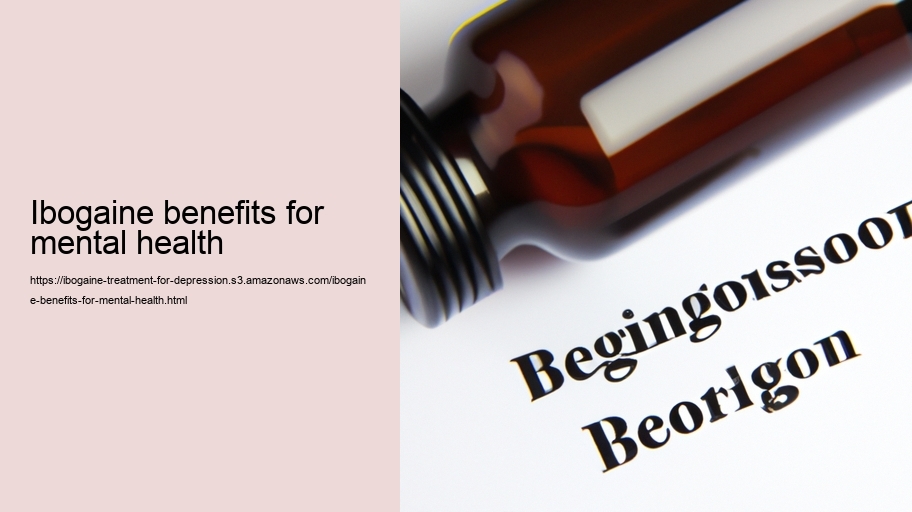Title: Exploring the Therapeutic Potential of Ibogaine for Mental Health
Introduction:
In recent years, there has been a growing interest in alternative therapies for treating mental health disorders. One such alternative that has captured the attention of researchers and individuals alike is ibogaine—a naturally occurring psychoactive substance derived from the root bark of the African shrub Tabernanthe iboga. Although it is often associated with its use in traditional spiritual ceremonies and its controversial role as an addiction interrupter, emerging evidence suggests that ibogaine may offer benefits for mental health beyond substance dependence. This essay aims to delve into the potential therapeutic effects of ibogaine on mental well-being, while also considering the challenges and controversies surrounding its use.
The Promise of Ibogaine:
Ibogain's potential benefits for mental health are grounded in its unique pharmacological profile, which affects several neurotransmitter systems, including serotonin, dopamine, and glutamate pathways—each playing a crucial role in mood regulation and cognitive function. Its action on these systems suggests a capacity to influence psychological states and potentially alleviate symptoms associated with various psychiatric conditions.
1. Addiction Treatment:
Perhaps most notably, ibogaine has gained recognition for its reported ability to dramatically reduce withdrawal symptoms and cravings associated with opioid addiction. Users often describe experiencing a form of introspection or life review during their ibogaine experiences, which can lead to insights into their addictive behaviors and motivations. This psychological effect could be harnessed therapeutically to facilitate recovery from addiction by addressing underlying emotional issues.
2. Mood Disorders:
There are anecdotal reports and preliminary studies suggesting that ibogaine may have antidepressant properties. Patients who have undergone treatment with ibogaine have occasionally reported improvements in mood stability and reductions in depressive symptoms lasting weeks or even months after administration.
3. PTSD and Trauma:
Some believe that the intense psychotropic experience induced by ibogaine can enable individuals to confront traumatic memories more openly, possibly allowing for new perspectives on past events leading to emotional healing.
Challenges and Controversies:
Despite these promising aspects, there are significant hurdles concerning the clinical use of ibogaine:
1. Legal Status:
Ibogaine is classified as a Schedule I controlled substance in many countries—including the United States—due to concerns about safety and abuse potential. This classification severely limits clinical research opportunities within those jurisdictions.
2. Safety Concerns:
Ibogeine's safety profile is not fully understood; it has been associated with adverse cardiac effects including arrhythmias as well as other serious side effects like ataxia or seizures when taken improperly or without medical supervision.
3. Lack of Robust Clinical Trials:
Much of the evidence supporting ibogaïne's efficacy comes from case reports or observational studies rather than randomized controlled trials—the gold standard for evaluating treatment effectiveness.
Conclusion:
The exploration into ibogaïne's benefits for mental health represents an intersection between modern science and traditional knowledge—a frontier yet adequately charted but brimming with potential promise if navigated responsibly.
Advocates argue that further research could illuminate how best to utilize this powerful compound safely within therapeutic contexts.
However until rigorous scientific investigations are conducted under carefully controlled conditions we must remain cautious about embracing ibogaïne as a mainstream treatment modality.
The journey towards understanding whether—and how—ibogaïne might contribute positively toward human psychological wellness continues leaving us intrigued by what future studies will reveal about this enigmatic molecule’s place within psychiatry’s toolkit.
